
Tswana, also known by its native name Setswana, and previously spelled Sechuana in English, is a Bantu language spoken in and indigenous to Southern Africa by about 8.2 million people. It is closely related to the Northern Sotho and Southern Sotho languages, as well as the Kgalagadi language and the Lozi language.

Mahikeng, formerly known as Mafikeng and alternatively known as Mafeking, is the capital city of the North West province of South Africa.

isiNdebele, also known as Southern Ndebele is an African language belonging to the Mbo group of Bantu languages, spoken by the Ndebele people of South Africa.

Bophuthatswana, officially the Republic of Bophuthatswana, and colloquially referred to as the Bop, was a Bantustan that was declared (nominally) independent by the apartheid regime of South Africa in 1977. However, like the other Bantustans of Ciskei, Transkei and Venda, its independence was not recognized by any country other than South Africa.
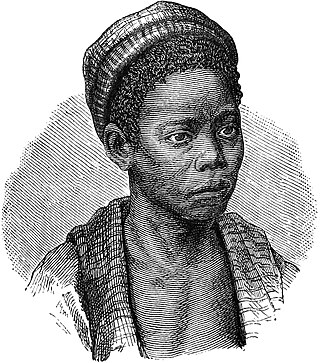
The Tswana are a Bantu ethnic group native to Southern Africa. Ethnic Tswana made up approximately 85% of the population of Botswana in 2011.
SothoSesotho, also known as Southern Sotho or Sesotho sa Borwa is a Southern Bantu language of the Sotho–Tswana ("S.30") group, spoken in Lesotho, and South Africa where it is an official language.
The term Batlôkwa refers to several Kgatla communities that reside in Lesotho and South Africa.
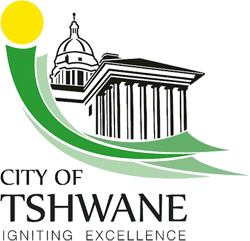
The City of Tshwane Metropolitan Municipality, also known as the City of Tshwane, is the metropolitan municipality that forms the local government of northern Gauteng in South Africa. The metropolitan area is centred on the city of Pretoria with surrounding towns and localities included in the local government area.
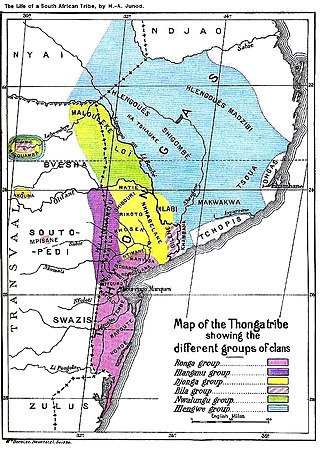
The Tsonga people are a Bantu ethnic group primarily native to Southern Mozambique and South Africa. They speak Xitsonga, a Southern Bantu language. A very small number of Tsonga people are also found in Zimbabwe and Northern Eswatini. The Tsonga people of South Africa share some history with the Tsonga people of Southern Mozambique, and have similar cultural practices, but differ in the dialects spoken.
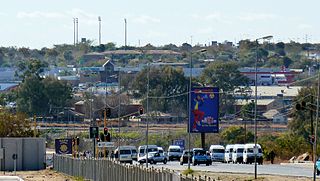
Hammanskraal is a trans-provincial region anchored in northern Gauteng province, South Africa. The region consists of multiple, residential, industrial and commercial areas in a decentralized settlement pattern.
The Northern Ndebele people are a Nguni ethnic group native to Southern Africa. Significant populations of native speakers of the Northern Ndebele language (siNdebele) are found in Zimbabwe and in South Africa.

The Sotho-Tswana, also known as the Sotho or Basotho, although the term is now closely associated with the Southern Sotho peoples are a meta-ethnicity of Southern Africa. They are a large and diverse group of people who speak Sotho-Tswana languages. The group is predominantly found in Botswana, Lesotho, South Africa, and the western part of Zambia. Smaller groups can also be found in Namibia and Zimbabwe.
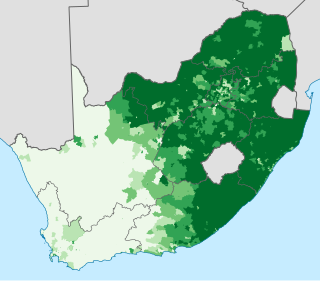
South African Bantu-speaking peoples represent the majority ethno-racial group of South Africans. Occasionally grouped as Bantu, the term itself is derived from the English word "people", common to many of the Bantu languages. The Oxford Dictionary of South African English describes "Bantu", when used in a contemporary usage or racial context as "obsolescent and offensive", because of its strong association with the "white minority rule" with their Apartheid system. However, Bantu is used without pejorative connotations in other parts of Africa and is still used in South Africa as the group term for the language family.
Ga-Rankuwa is a large settlement located about 37 km north-west of Pretoria. Provincially it is in Gauteng province, but it used to fall in Bophuthatswana during the apartheid years, and under the North West province until the early 2000s.

The Apies River is a river that flows through the city of Pretoria, South Africa. Its source is located just south of the city and it flows northward until it drains into the Pienaars River.

The Nguni people are a linguistic cultural group of Bantu cattle herders who migrated from central Africa into Southern Africa, made up of ethnic groups formed from hunter-gatherer pygmy and proto-agrarians, with offshoots in neighboring colonially-created countries in Southern Africa. Swazi people live in both South Africa and Eswatini, while Ndebele people live in both South Africa and Zimbabwe.
Mabopane is a residential township in South Africa. It is situated in the Tshwane Metropolitan Municipality, to the north of Pretoria in Gauteng.

AmaNdebele are an ethnic group native to South Africa who speak isiNdebele. They mainly inhabit the provinces of Mpumalanga, Gauteng and Limpopo, all of which are in the northeast of the country. In academia this ethnic group is referred to as the Southern Ndebele to differentiate it from their relatives the Northern Ndebele people of Limpopo and Northwest.
Pretoria Taal, or Pretoria Sotho, is the urban lingua franca of Pretoria and the Tshwane metropolitan area in South Africa. It is a combination of Sepedi-Tswana and influences from Tsotsitaal, Afrikaans and other Bantu languages of the region. It is spoken by most black residents of all ages and levels of education in Tshwane. Though it is most commonly used in informal situations, it is also used in schools and at political events in which people have different language backgrounds. Standard Setswana and Northern Sotho are not commonly used in schools except in SeTswana and Northern Sotho lessons. Pretoria Taal is mutually intelligible with SeTswana and Northern Sotho.
BAPO 2 is an ethnic village in the North West province of South Africa.















